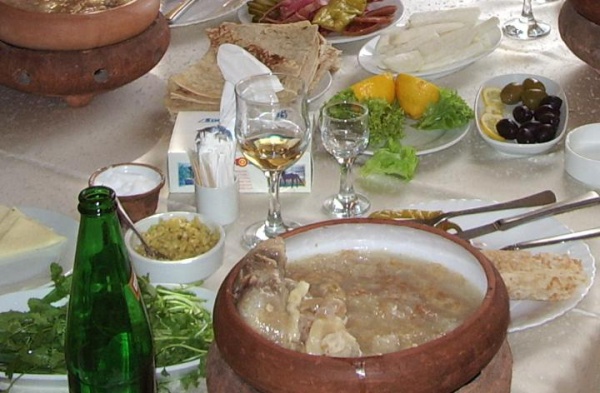Facts About Khash
Khash, also known by names such as pacha, kalle-pache, kakaj šürpi, or serûpê, is a traditional delicacy made from the boiled parts of cows or sheep, including the head, feet, and stomach. This hearty dish is savored in numerous countries, including Afghanistan, Albania, Armenia, Azerbaijan, Bosnia and Herzegovina, Bulgaria, Georgia, Greece, Iran, Iraq, Kuwait, Bahrain, Mongolia, and Turkey.
The term "khash" is derived from the Armenian verb "xašel" meaning "to boil." In the South Caucasus, khash is typically prepared with minimal ingredients and is often served with salt, garlic, lemon juice, or vinegar. It is regarded as a delicacy and is particularly popular during the colder months.
In Iran, a similar dish called kalle-pache is made from a sheep's head and trotters. It is seasoned with lemon and cinnamon and commonly consumed as a breakfast soup in winter. In Israel, a comparable soup made from sheep or cow parts is enjoyed during the winter, frequently spiced with onions and various seasonings.
In Arab countries such as Iraq, pacha consists of sheep's head, trotters, and stomach, all slow-boiled and served with bread. In Albania, the dish, called pache, involves boiling a sheep's head until the meat is tender, then stewing it with garlic, onion, black pepper, and vinegar.
In Turkey, pacha refers to various soup preparations often including offal from cows, sheep, or goats. In Greece, the dish is known as patsás and can be seasoned with red wine vinegar and garlic or thickened with avgolémono, a mixture of eggs and lemon juice.
Similar dishes from around the world include Paya in South Asia, Smalahove in Norway, Soğuk paça in Turkey, and Svið in Iceland. Khash is often reputed to be an excellent remedy for hangovers and is served at special eateries called "patsatzidika" in Greece.

 Serbia
Serbia